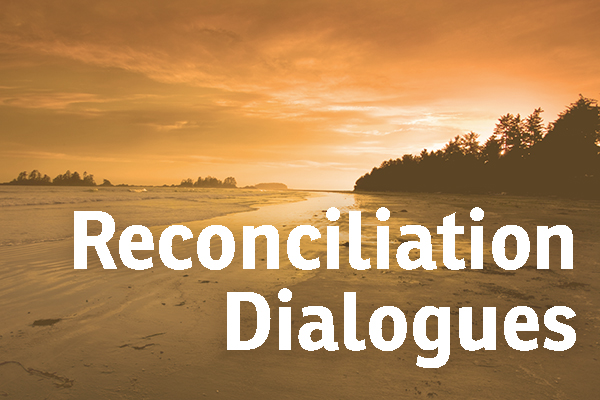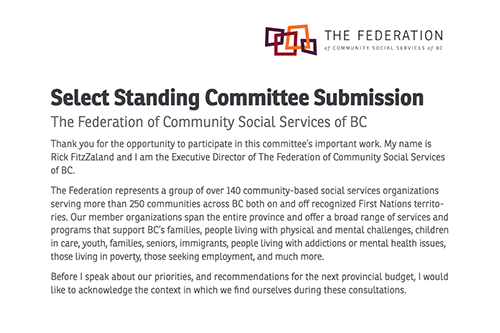CYSN and The Federation…
How we got here…
Last year, MCFD announced significant changes to the system of care for children and youth with support needs (CYSN). Consultations for this process began back in 2019, albeit without a lot of clarity about how the harvest from the consultations would be used and before the upheaval and tragedy of the pandemic—which came with many new lessons about just how isolated many young children with support needs are.
In the spring of 2022, MCFD released its service framework and the service expectations and descriptions for the new family connection centres. But many felt that there was not adequate consultation on the new model itself. In the leadup to the release, The Federation joined other community groups in advocating for more consultation, a slower roll-out, and a revised procurement approach.
This advocacy work led to The Federation coming together with the BC Association of Aboriginal Friendship Centres, the BC Association of Child Development and Intervention, and Inclusion BC to facilitate and prioritize collaborative community engagement—an approach we continue to focus on.
Where we are…
We understand and appreciate that some families are still worried about losing access to supports for their children which took a lot of time and energy to access. Everything that can be done to alleviate those very real worries should be done by MCFD. No family should lose the connections they have made or supports they have established because of these changes.
Decision makers in the government—both bureaucrats and politicians—have heard and will continue to be briefed on our concerns about how these changes are being made. We are advocating consistently and deliberately about the funding formula for family centres, the procurement model, the lack of engagement, and the timeline of this systems change.
The existing system of care for children and youth with support needs is fundamentally broken. It needs to change. We are in support of CYSN systems change that will make services easier for families to navigate, that will reduce barriers to accessing service (particularly for Indigenous children), and that will build community connections that will increase inclusion and belonging for kids with support needs. That is what we at The Federation are expecting and working toward. If we need to pivot and change our approach or strategy in the months ahead, we will do so. But our goal will always be a system of care that best serves and supports all of our kids and their families.
And we cannot build a more equitable system of care while keeping the parts that contribute to that inequity. That won’t lead to a better system, just a different version of the same thing. That’s why things like sunsetting the individualized funding model are important—they are a step towards creating a more just and caring system.
Where we’re going…
Our strategy now and moving forward is to continue prioritizing and focusing on the collaborative community development approach that has been established with our partners at the BC Association of Aboriginal Friendship Centres, the BC Association of Child Development and Intervention, and Inclusion BC. This approach supports community collaboration in response to the upcoming procurement process for the Family Centres.
There is a joint members meeting of this group on September 26 and all Federation members are welcome. Please email rebecca@fcssbc.ca for the registration link. This meeting will provide clarity about what this collaborative project is (and isn’t) and what our goals are for the work ahead.
As always, please contact either of us if you have any questions or concerns about this or any of The Federation’s ongoing advocacy and engagement efforts.
Rick FitzZaland, Executive Director
rick@fcssbc.ca
Rebecca Lang, Associate Executive Director
rebecca@fcssbc.ca



